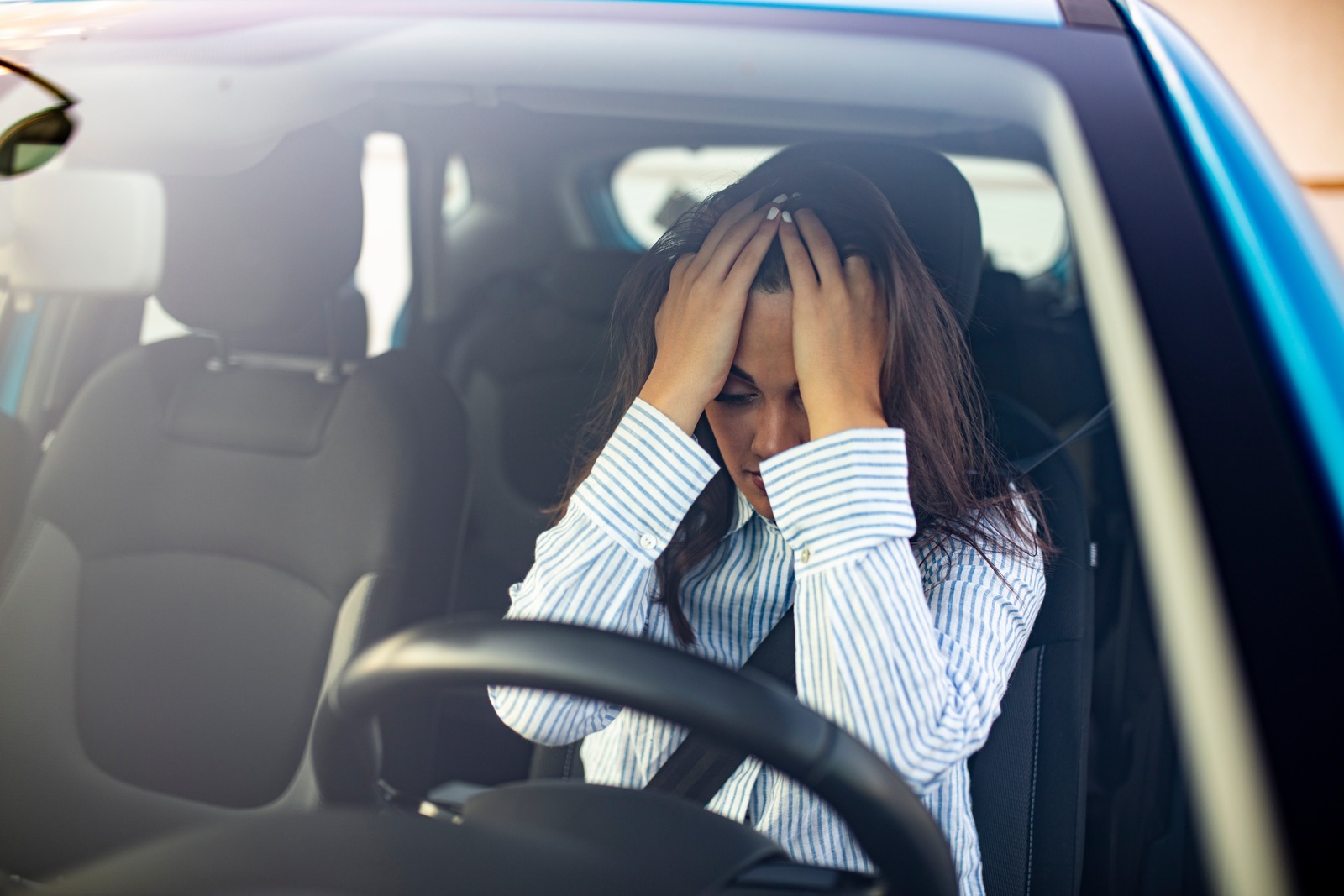Substances | 4 min read
Does Hydrocodone Make You Sleepy?
Medically Reviewed By

On April 15, 2024
Written By
On April 15, 2024

What you will learn
- Hydrocodone is an opiate medication used to treat moderate to severe pain.
- Hydrocodone has some common but serious side effects, including drowsiness and dizziness.
- Precautions to take while on hydrocodone include not driving and having naloxone on hand in case of an overdose.
- Your healthcare provider should coordinate with you closely when deciding to prescribe hydrocodone, monitoring while on it, and planning for termination to reduce withdrawal symptoms.
One of hydrocodone’s most common side effects is drowsiness.[1] Hydrocodone is an opioid drug that is FDA-approved to treat chronic or severe pain. Brand names of hydrocodone include Vicodin, Lortab, Lorcet-HD, Hycodan, and Vicoprofen, all of which also contain acetaminophen. Hydrocodone is often combined with acetaminophen in certain medications, such as Vicodin, because acetaminophen can enhance the pain-relieving effects of hydrocodone.
While hydrocodone will make you sleepy, it also disrupts your sleep patterns.[2] It prevents you from entering rapid eye movement (REM) sleep and limits the deeper stages of sleep. While you may sleep more when taking hydrocodone, your sleep quality will be lower.
How Does Hydrocodone Work?
Hydrocodone and acetaminophen combination is used to relieve moderate to severe pain.[3] It is prescribed when other pain medications have not been effective and an opioid treatment is warranted. Hydrocodone is among the drugs classified as an opiate or narcotic analgesics, which are pain medicines. It acts on the central nervous system (CNS) to relieve pain.
Does Hydrocodone Make You Sleepy? Side Effects of Hydrocodone
Common side effects of hydrocodone include: [4]
- drowsiness and feeling tired
- nausea, vomiting, and constipation
- dizziness
- headache
- cold symptoms (stuffy nose, sneezing, sore throat).
Serious side effects of hydrocodone that require immediate medical attention include: [5]
- Breathing problems: noisy breathing, sighing, shallow breathing, breathing that stops during sleep
- a slow heart rate or weak pulse, a fast heart rate
- pain or burning during urination
- confusion, agitation, tremors, hallucinations
- severe drowsiness, severe tiredness, or weakness
- a light-headedness, dizziness
- loss of appetite, nausea, vomiting, diarrhea, fever, sweating, shivering
- muscle stiffness, twitching, and loss of coordination.
Precautions to Take When Using Hydrocodone
If there is another adult or caregiver in the home, they can be made aware that you are taking hydrocodone so they can be more aware if you become extra sleepy and hard to wake up. They should be made aware of signs of an overdose and how to get emergency help should they need it.
Hydrocodone should be taken in the amount prescribed and for no longer than the duration of the prescription. If a dose is missed, do not take a double dose to make up for it. This can be dangerous and fatal.
Some people experience dizziness or drowsiness when taking hydrocodone. Until you know if it impairs your thinking or reactions, you should not drive or operate equipment that could harm yourself or others.[6]
Avoid drinking alcohol as it can increase drowsiness and could increase the risk of liver damage.
Do not take any other medications, including over-the-counter allergy or cold medicine and supplements, in combination with hydrocodone without talking to your doctor first.
It is recommended to avoid taking hydrocodone during pregnancy unless absolutely necessary, as there is a risk of neonatal opioid withdrawal syndrome if the baby is exposed to hydrocodone in utero. Breastfeeding should be avoided while taking hydrocodone as it can cause the baby to experience severe drowsiness and slowed breathing.
If an extra dose is accidentally taken, seek emergency medical attention immediately. A hydrocodone overdose can be fatal.
Hydrocodone can be habit-forming. Talk to your doctor immediately if you are urged to take more than prescribed.
All medications, but especially narcotics, which include hydrocodone, should be stored safely and securely where no one else can have access to them besides the person they were prescribed to. Just one dose taken improperly can cause death.
Hydrocodone Overdose
The poison control helpline can assist if you suspect you or someone you know may be experiencing an overdose. The poison control helpline and the online search program are at https://www.poisonhelp.org/help or https://poisonhelp.hrsa.gov/. [7]
If the person has trouble breathing, has passed out, had a seizure, or can’t be woken up, call 911 for emergency medical help immediately. A hydrocodone overdose can be life-threatening.
While prescribed and taking hydrocodone, you should discuss with your healthcare provider about having the rescue medication naloxone on hand (Brand name: Narcan). Naloxone reverses the effects of an overdose.[8] During an overdose, there are high levels of opiates in the person’s blood that are causing the dangerous overdose symptoms; naloxone works by blocking the effects of the opiates. As an extra precaution, you should talk to your healthcare provider about a naloxone prescription if you are prescribed hydrocodone and you have small children or someone who has struggled with substance use living in your home
Ensure that family members, friends, or caregivers who frequently spend time with you are aware of the symptoms of a hydrocodone overdose and understand how to administer naloxone. Depending on the state you live in, you may be able to receive free naloxone from a pharmacy or health department, or you may be required to have a prescription from your medical provider. Your doctor or pharmacist can show you or your loved ones how to use naloxone. Some states provide regularly scheduled free community training on naloxone use for treating an overdose.
If symptoms of an overdose occur, the first dose of naloxone should be given, and immediately after, 911 should be called. If the overdose symptoms do not subside or return within a few minutes, a second dose of naloxone should be administered. Naloxone can continue to be given every two to three minutes until symptoms subside or emergency medical services arrive. [9]
Symptoms of overdose may include: [10]
- slow or shallow breathing
- difficulty breathing
- sleepiness
- muscle weakness
- cold, clammy skin
- narrowed or widened pupils (dark circles in the middle of the eyes)
- slowed heartbeat
- unable to respond or wake up
- unusual snoring
Use Caution When Using Hydrocodone
Hydrocodone can be a helpful drug for pain management. However, its numerous side effects, including sleepiness and sedation, can impact your ability to complete daily living activities. There is also the risk of a hydrocodone addiction or overdose. You should work closely with your healthcare provider before, during, and when terminating hydrocodone due to its significant health risks.
Frequently Asked Questions About Hydrocodone and Sleepiness
Talk to your healthcare provider about how to safely stop taking Hydrocodone. Hydrocodone should not be stopped abruptly as it can have numerous and sometimes dangerous withdrawal effects.[11] These include restlessness, irritability, anxiety, body aches and pains, sleep problems, gastrointestinal problems, fast breathing, and fast heartbeat. To avoid withdrawal symptoms, your dose should be decreased gradually.
Any leftover medications can be disposed of at drug take-back programs offered at pharmacies and law enforcement offices. You can search for the closest drug take-back locations on the US Drug Enforcement Agency’s website.[12] They also sponsor a National Drug Take Back Day with additional locations for the event. [13]
If there is not a local drug take-back program near you, the second best way to dispose of unused hydrocodone is by throwing it in the garbage. DO NOT THROW THE WHOLE BOTTLE AND PILLS IN THE TRASH. First, mix the pills with something to make them inedible.[14] This could be cat litter, used coffee grounds, or dirt. Place everything in a sealable container, such as a ziplock bag or an old jar. The destroyed hydrocodone can then be placed in the trash. This prevents children, pets, or someone going through the trash to find drugs from being able to take them.
Due to hydrocodone’s risk of being habit-forming, allergic reactions, or physical or mental health reasons, some people do not wish to take an opiate for pain management. There are other alternatives that you can discuss with your doctor. Some alternatives for pain management that have positive results include:[15]
- Non-opioid medications: NSAIDs, acetaminophen, corticosteroids, antidepressants, anticonvulsants, topical medications
- Injections: joint injections, trigger point injections, Epidural Steroid Injections, nerve blocks, nerve stimulation, spinal cord stimulation
- Exercise and physical therapy: Physical activity can reduce the severity of pain and improve function, quality of life, and mental health. Physical therapy has been shown to reduce chronic low back pain.
- Transcutaneous Electric Nerve Stimulation (TENS): TENS involves applying adhesive electrodes to the skin over the painful area. A low-voltage of electricity is then passed through the electrodes. Some people report reduced pain after a TENS session.
- Behavioral therapy: Cognitive-behavioral therapy (CBT) can help reduce the catastrophizing and maladaptive thinking often experienced by those with chronic pain. CBT helps develop coping skills around pain management, reduces pain intensity, and improves overall functioning.
Ascendant New York Editorial Guidelines
Here at Ascendant New York, we understand the importance of having access to accurate medical information you can trust, especially when you or a loved one is suffering from addiction. Find out more on our policy.
[1,4,5,6] drugs.com (2023). Hydrocodone. Retrieved from https://www.drugs.com/hydrocodone.html on April 12, 2024.
[2] Moore, J.T., Kelz, M.B. (2009). Opiates, sleep, and pain: the adenosinergic link. Anesthesiology. 111(6):1175-6. doi: 10.1097/ALN.0b013e3181bdfa2e. Retrieved from https://www.ncbi.nlm.nih.gov/pmc/articles/PMC2784658/ on April 12, 2024.
[3] Mayo Clinic (2024) Hydrocodone and Acetaminophen (Oral Route) Retrieved from https://www.mayoclinic.org/drugs-supplements/hydrocodone-and-acetaminophen-oral-route/description/drg-20074089 on April 12, 2024.
[7] America’s Poison Center (2024). Poison Help. Retrieved from https://www.poisonhelp.org/help/ on April 12, 2024.
[8,9,10,11] Medline Plus (2024). Hydrocodone. Retrieved from https://medlineplus.gov/druginfo/meds/a614045.html on April 12, 2024.
[12,13] DEA.gov. (2024). National Drug Take Back Day. Retrieved from https://www.dea.gov/takebackday on April 12, 2024.
[14] FDA.gov (2024). Where and How to Dispose of Unused Medicines. Retrieved from https://www.fda.gov/consumers/consumer-updates/where-and-how-dispose-unused-medicines on April 12, 2024.
[15] Dey, S., Vrooman, B.M.(2023) Alternatives to Opioids for Managing Pain. In: StatPearls [Internet]. Treasure Island (FL): StatPearls Publishing. Retrieved from https://www.ncbi.nlm.nih.gov/books/NBK574543/ on April 12, 2024.




